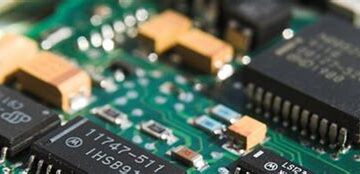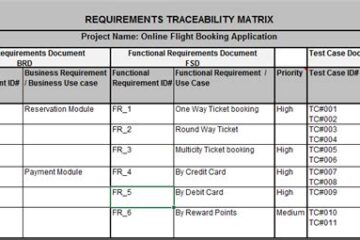Introduction to PCB Manufacturing
Printed Circuit Boards (PCBs) are the backbone of modern electronics. They are used in almost every electronic device, from smartphones and computers to medical equipment and aerospace systems. PCB manufacturing is a complex process that requires precision, expertise, and state-of-the-art technology. In this article, we will explore the world of PCB manufacturing and take a closer look at one of the leading PCB Manufacturers in the industry: Neltec.
What are PCBs?
PCBs are flat boards made of insulating materials, such as fiberglass or plastic, with conductive pathways etched onto them. These pathways, also known as traces, connect various electronic components, such as resistors, capacitors, and integrated circuits, to form a complete circuit. PCBs come in various types, depending on the number of layers, the material used, and the manufacturing process.
| PCB Type | Description |
|---|---|
| Single-layer PCB | A PCB with conductive pathways on only one side of the board. |
| Double-layer PCB | A PCB with conductive pathways on both sides of the board. |
| Multi-layer PCB | A PCB with conductive pathways on multiple layers, separated by insulating materials. |
| Flexible PCB | A PCB made of flexible materials, such as polyimide, that can bend and twist. |
| Rigid-Flex PCB | A PCB that combines rigid and flexible sections for enhanced functionality and durability. |
The PCB Manufacturing Process
The PCB manufacturing process involves several steps, each requiring precision and attention to detail. Here are the main steps involved in PCB manufacturing:
1. PCB Design
The first step in PCB manufacturing is designing the circuit. This is done using specialized software, such as Altium Designer or Eagle, which allows engineers to create a schematic diagram of the circuit and lay out the components on the board. The design must take into account factors such as signal integrity, power distribution, and electromagnetic compatibility.
2. PCB Fabrication
Once the design is complete, the next step is to fabricate the PCB. This involves several sub-steps, including:
- Printing: The PCB design is printed onto a photosensitive film, which is then used to create a photomask.
- Lamination: The photomask is placed on top of a copper-clad board, which is then exposed to ultraviolet light. The light hardens the exposed areas of the photoresist, while the unexposed areas remain soft.
- Etching: The board is then placed in an etching solution, which removes the unwanted copper, leaving only the desired traces.
- Drilling: Holes are drilled into the board to allow components to be mounted and connected.
- Plating: The holes are plated with a conductive material, such as copper, to ensure a secure connection between layers.
- Solder Mask: A protective layer, known as the solder mask, is applied to the board to prevent short circuits and protect the traces from damage.
- Silkscreen: The final step is to print the component labels and other markings onto the board using a silkscreen process.
3. PCB assembly
After the PCB is fabricated, the next step is to assemble the components onto the board. This can be done using various methods, such as through-hole assembly or surface-mount technology (SMT). In through-hole assembly, the components are inserted into holes drilled in the board and soldered in place. In SMT, the components are placed on top of the board and soldered using a reflow oven.
4. PCB Testing
The final step in PCB manufacturing is testing the board to ensure it functions as intended. This involves various tests, such as:
- Visual inspection: The board is visually inspected for any defects or abnormalities.
- Continuity test: The board is tested for electrical continuity to ensure all connections are secure.
- Functional test: The board is powered up and tested to ensure it performs as expected.
- Burn-in test: The board is subjected to extreme temperatures and operating conditions to ensure it can withstand real-world use.

Why Choose Neltec for PCB Manufacturing?
Neltec is a leading PCB manufacturer with over 30 years of experience in the industry. They offer a wide range of PCB manufacturing services, from prototype to high-volume production, and have the expertise and technology to handle even the most complex designs.
State-of-the-Art Facilities
Neltec has state-of-the-art manufacturing facilities equipped with the latest technology and equipment. Their facilities are ISO 9001:2015 certified, ensuring the highest quality standards are met throughout the manufacturing process.
Experienced Team
Neltec has a team of experienced engineers and technicians who are experts in PCB design and manufacturing. They work closely with customers to understand their specific requirements and provide customized solutions to meet their needs.
Wide Range of Services
Neltec offers a wide range of PCB manufacturing services, including:
- Prototype and low-volume production
- High-volume production
- Multilayer PCBs
- Flexible and rigid-flex PCBs
- PCB assembly
- PCB testing and inspection
Quick Turnaround Times
Neltec understands the importance of timely delivery in the fast-paced world of electronics. They offer quick turnaround times for prototype and low-volume production, with standard lead times of 5-7 days for 2-layer PCBs and 7-10 days for 4-layer PCBs.
Competitive Pricing
Neltec offers competitive pricing for all their PCB manufacturing services without compromising on quality. They work with customers to find cost-effective solutions that meet their budget and performance requirements.
Applications of PCBs
PCBs are used in a wide range of applications across various industries. Here are some of the most common applications of PCBs:
Consumer Electronics
PCBs are used in almost every consumer electronic device, from smartphones and laptops to televisions and gaming consoles. They provide the necessary circuitry to power and control these devices, enabling them to perform complex functions and deliver high-quality user experiences.
Automotive Electronics
PCBs are increasingly used in automotive electronics, such as engine control units, infotainment systems, and advanced driver assistance systems (ADAS). They provide reliable and robust performance in harsh operating conditions, ensuring the safety and functionality of modern vehicles.
Medical Devices
PCBs are used in a wide range of medical devices, from diagnostic equipment and monitoring systems to implantable devices and prosthetics. They must meet strict safety and reliability standards to ensure patient safety and efficacy.
Aerospace and Defense
PCBs are used in various aerospace and defense applications, such as avionics, radar systems, and military communications equipment. They must be designed and manufactured to withstand extreme temperatures, vibrations, and electromagnetic interference (EMI) to ensure reliable performance in mission-critical situations.
Industrial Automation
PCBs are used in industrial automation systems, such as programmable logic controllers (PLCs), sensors, and actuators. They enable precise control and monitoring of industrial processes, improving efficiency and productivity.
Future of PCB Manufacturing
The PCB manufacturing industry is constantly evolving, driven by advances in technology and changing market demands. Here are some of the key trends shaping the future of PCB manufacturing:
Miniaturization
As electronic devices become smaller and more compact, PCBs must also shrink in size. This requires advanced manufacturing techniques, such as high-density interconnect (HDI) and embedded components, to pack more functionality into smaller spaces.
Increased Complexity
As electronic systems become more complex and sophisticated, PCBs must also become more complex to support them. This requires advanced design tools and manufacturing processes to handle high layer counts, fine pitch components, and high-speed signals.
Sustainability
There is a growing focus on sustainability in the PCB manufacturing industry, driven by regulations and consumer demand for environmentally friendly products. This includes the use of green materials, such as halogen-free laminates and lead-free solders, as well as the adoption of sustainable manufacturing practices, such as waste reduction and energy efficiency.
Industry 4.0
The PCB manufacturing industry is embracing Industry 4.0 technologies, such as automation, artificial intelligence, and the Internet of Things (IoT), to improve efficiency, quality, and flexibility. These technologies enable real-time monitoring and control of the manufacturing process, as well as predictive maintenance and quality assurance.
Frequently Asked Questions (FAQ)
1. What is the minimum order quantity for PCB manufacturing at Neltec?
Neltec offers low minimum order quantities (MOQs) for prototype and low-volume production. The exact MOQ depends on the specific requirements of the project, but can be as low as 5 pieces for standard 2-layer PCBs.
2. What is the typical lead time for PCB manufacturing at Neltec?
Neltec offers quick turnaround times for prototype and low-volume production. The standard lead time for 2-layer PCBs is 5-7 days, while 4-layer PCBs have a lead time of 7-10 days. Lead times for high-volume production and complex designs may vary depending on the specific requirements of the project.
3. What types of PCBs can Neltec manufacture?
Neltec can manufacture a wide range of PCBs, including single-layer, double-layer, and multi-layer PCBs, as well as flexible and rigid-flex PCBs. They have the expertise and technology to handle complex designs with high layer counts, fine pitch components, and high-speed signals.
4. What certifications does Neltec have for PCB manufacturing?
Neltec’s manufacturing facilities are ISO 9001:2015 certified, ensuring the highest quality standards are met throughout the manufacturing process. They also comply with various industry standards, such as IPC and RoHS, to ensure the safety and reliability of their products.
5. How can I get a quote for PCB manufacturing from Neltec?
To get a quote for PCB manufacturing from Neltec, you can submit your design files and requirements through their website or contact their sales team directly. They will review your design and provide a detailed quote based on your specific requirements, including quantity, lead time, and any special features or customization needed.
Conclusion
PCB manufacturing is a critical process that enables the functionality and performance of modern electronic devices. Neltec is a leading PCB manufacturer with the expertise, technology, and facilities to handle even the most complex designs. With their wide range of services, quick turnaround times, and competitive pricing, Neltec is a trusted partner for businesses and organizations across various industries. As the PCB manufacturing industry continues to evolve, Neltec is well-positioned to meet the changing needs and demands of the market, delivering high-quality PCBs that power the electronics of tomorrow.



0 Comments